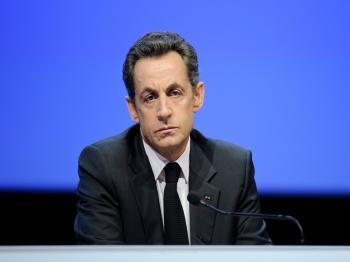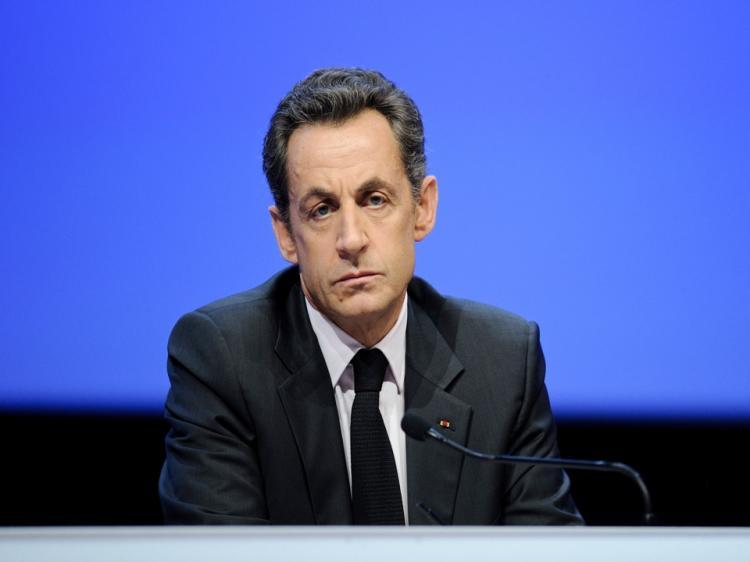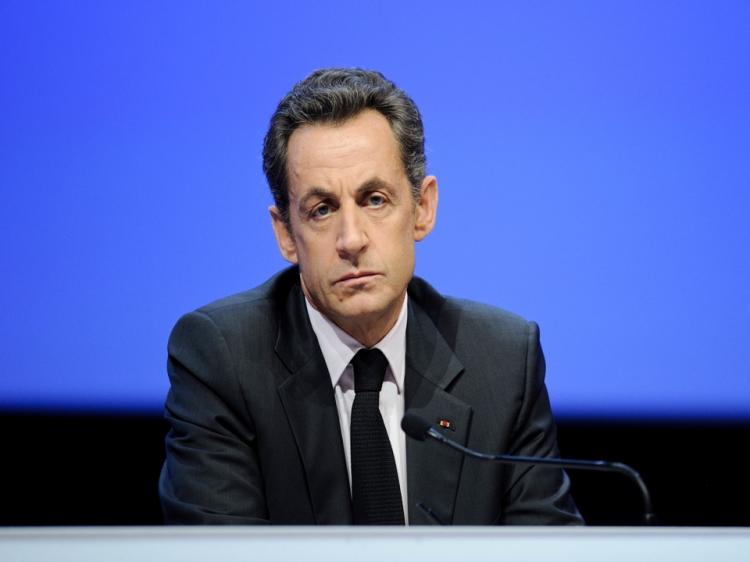PARIS—Rarely has France seen so many political scandals and controversies during a single presidency. This week, just after a Cabinet shuffle was supposed to breath new life into Nicolas Sarkozy’s government ahead of 2012 elections, “Karachigate” broke—the second scandal in less than six months directly involving the president. As the pressure on Sarkozy mounts, it could be enough to cost him the presidency.
In the newest scandal, testimony from a former Defense minister offers new evidence of a system of corruption linked to weapons sales to Pakistan in the mid-1990s, in which Sarkozy is accused of having been a prominent player.
In the early 1990s, France tried to sell submarines to Pakistan. A military export company, Sofma, and an offshore company, Mercor, were commissioned to secure the sale and allegedly succeeded by offering large bribes to Pakistani officials. Both companies received in compensation, totaling 10 percent of value of the sales—a practice at the time, authorized under French law. A part of that legal commission was illegally paid to French officials.
In 1995, when Jacques Chirac was elected president, he asked for an investigation into possible kickbacks. Based on the results of that investigation, Chirac ordered that Sofma and Mercor stop receiving commissions.
In May 2002, a deadly blast in Karachi killed 11 French engineers. According to different security sources quoted in investigations by Mediapart news site and Le Point newspaper in 2008, Chirac’s move may have been the cause of the attacks. All of the victims were employees in the French shipbuilding industry, and their murders—initially interpreted as a terror attack—are widely suspected of having been planned by Pakistani officials in retaliation for losing the bribe money.
On Nov. 18, Charles Millon, former Defense minister under Chirac in the late 1990s, testified that he knew of the so-called kickbacks and had been asked by the newly elected Chirac to put an end to them. Millon was answering question from a French judge investigating possible false testimonies and obstructions of justice in the investigation of the Karachi blast.
Dominique de Villepin, French prime minister from 2005 to 2007 and secretary-general for President Chirac in the 1990s, then confirmed on TF1 TV that kickbacks existed and benefited “political and nonpolitical personalities.”
Although no names were cited, the suspected personalities include Edouard Balladur, presidential candidate in 1995 and Nicolas Sarkozy, then Budget minister and spokesperson for Balladur. French investigative website Mediapart, that first broke the allegations of corruption in the L’Oreal heiress scandal in May this year, claimed on Nov. 21 it had proof that Sarkozy was directly involved and had created a shadow company in Luxembourg to repatriate the kickbacks.
If evidence surfaces proving the latest allegations true, the pressure on Sarkozy to resign will be enormous. The same holds true if conclusive evidence emerges regarding allegations that he received illegal financial support from the l’Oreal heiress during the 2007 presidential campaign.
The nervousness with which Sarkozy lashed out at a journalist asking about his involvement in “Karachigate” during the NATO submit in Lisbon on Nov. 19 (he called the reporter a pedophile) is perhaps a sign of how things might unfold.
The most recent poll by the TNS institute for Le Nouvel Observateur newspaper, if an election were held right now, any left-wing candidate would beat Sarkozy, some say by as many as 20 points.
What makes Sarkozy’s situation even more precarious is that he has made few friends in the French press, which often accuses him of trying to control coverage of him. Some media outlets are almost entirely devoted to attacking him, trying to ruin his credibility. Their job may have just become a lot easier.
Weapons Sales
In the newest scandal, testimony from a former Defense minister offers new evidence of a system of corruption linked to weapons sales to Pakistan in the mid-1990s, in which Sarkozy is accused of having been a prominent player.
In the early 1990s, France tried to sell submarines to Pakistan. A military export company, Sofma, and an offshore company, Mercor, were commissioned to secure the sale and allegedly succeeded by offering large bribes to Pakistani officials. Both companies received in compensation, totaling 10 percent of value of the sales—a practice at the time, authorized under French law. A part of that legal commission was illegally paid to French officials.
In 1995, when Jacques Chirac was elected president, he asked for an investigation into possible kickbacks. Based on the results of that investigation, Chirac ordered that Sofma and Mercor stop receiving commissions.
In May 2002, a deadly blast in Karachi killed 11 French engineers. According to different security sources quoted in investigations by Mediapart news site and Le Point newspaper in 2008, Chirac’s move may have been the cause of the attacks. All of the victims were employees in the French shipbuilding industry, and their murders—initially interpreted as a terror attack—are widely suspected of having been planned by Pakistani officials in retaliation for losing the bribe money.
Accusations by Two Former Ministers
On Nov. 18, Charles Millon, former Defense minister under Chirac in the late 1990s, testified that he knew of the so-called kickbacks and had been asked by the newly elected Chirac to put an end to them. Millon was answering question from a French judge investigating possible false testimonies and obstructions of justice in the investigation of the Karachi blast.
Dominique de Villepin, French prime minister from 2005 to 2007 and secretary-general for President Chirac in the 1990s, then confirmed on TF1 TV that kickbacks existed and benefited “political and nonpolitical personalities.”
Although no names were cited, the suspected personalities include Edouard Balladur, presidential candidate in 1995 and Nicolas Sarkozy, then Budget minister and spokesperson for Balladur. French investigative website Mediapart, that first broke the allegations of corruption in the L’Oreal heiress scandal in May this year, claimed on Nov. 21 it had proof that Sarkozy was directly involved and had created a shadow company in Luxembourg to repatriate the kickbacks.
Weakened President
If evidence surfaces proving the latest allegations true, the pressure on Sarkozy to resign will be enormous. The same holds true if conclusive evidence emerges regarding allegations that he received illegal financial support from the l’Oreal heiress during the 2007 presidential campaign.
The nervousness with which Sarkozy lashed out at a journalist asking about his involvement in “Karachigate” during the NATO submit in Lisbon on Nov. 19 (he called the reporter a pedophile) is perhaps a sign of how things might unfold.
The most recent poll by the TNS institute for Le Nouvel Observateur newspaper, if an election were held right now, any left-wing candidate would beat Sarkozy, some say by as many as 20 points.
What makes Sarkozy’s situation even more precarious is that he has made few friends in the French press, which often accuses him of trying to control coverage of him. Some media outlets are almost entirely devoted to attacking him, trying to ruin his credibility. Their job may have just become a lot easier.







